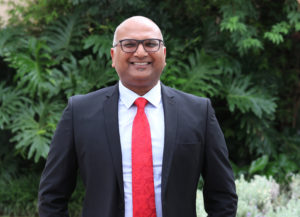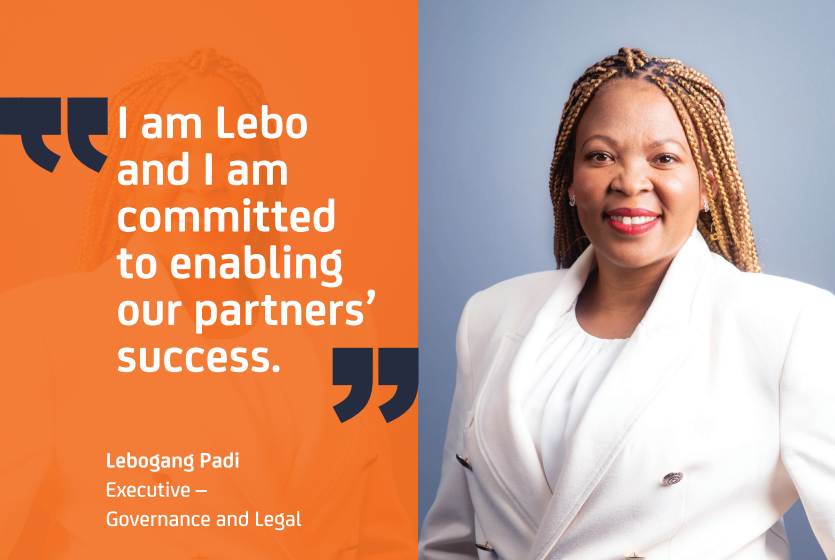
Lucien Mundie, General Manager, Guarantee Credit Suretyship at SGI Guarantee Acceptances and Contractors all Risk and Engineering, both divisions of Constantia Insurance Co Ltd takes us through the importance of Insurance Guarantees in the construction industry.
Tony: Please give us an overview of the types of guarantees that form part of the construction industry and the solutions that you provide?
Lucien: Based on our years of experience, we can offer our clients the most types of guarantees. These include five main categories of guarantees:
- Construction related guarantees such as Bid Bonds, Performance Guarantees, Advance Payment Guarantees, Retention Guarantees, etc.
- Solvency Guarantees such as Custom Bonds, Rental Deposit Guarantees, Supplier Payment Guarantees, Mining Rehabilitation Guarantees, etc.
- Court Bonds in respect of Liquidations and Sequestrations
- Educational Guarantees on behalf of Private Educational and Training Providers.
- NHBRC Late Enrolment Guarantees.
In the last few years, we have seen a huge uptick in Advanced Payment Guarantees because it assists with the liquidity of the construction company. Especially during COVID where construction companies have used their cash resources to survive the COVID slump. On the other hand, to also assist civil projects with liquidity, we have seen a good take up of Retention Guarantees.
During our 35 years in the industry, we have been at the forefront of developing and initiating several innovative products. Some of these include the NHBRC Late Enrolment Guarantee and Educational Guarantees for Private Educational and Training Institutions.
This means we now have a broad scope of guarantees to offer Brokers and their clients. Having said that, we do however restrict ourselves from issuing certain guarantees because of the higher risk inherent in the type of guarantee. One of the types of guarantees that we are cautious about are Fuel Guarantees. In the last few years, there have been several claims in the industry. We will only consider underwriting it where we are in the position to recover 100% in the event of a claim.
Tony: Like all businesses, the industry is struggling now that our economy is a bit sluggish. There has been a bit of revival in certain areas. How do you see the outlook for the next 12 months in this space, taking the current economic climate into consideration?
Lucien: Our research has concluded that for the next 12 months, the construction industry specifically has a positive outlook, based on numerous factors substantiating my point.
Number one is that Government is quite committed to the National Development Plan. The government is putting forward in the region of about R33 billion on just a few projects that is incorporated in the national development plan. This means that we will see more Government and Private Sector programmes coming through.
Other sectors such as petrochemicals etc, which are very specialized and growing in South Africa, especially Saldana Bay, Mossel Bay, KZN (KwaZulu Natal) and East London, is also providing opportunities for the construction industry and more specifically the engineering sector. Then there is also some positive fallout from the war in Russia in that the international market now looks to South Africa to supply certain commodities from our Mining Sector. This is showing in the number of guarantees that we issue in the mining sector. We were in a fortunate position where we have different facets and different sectors that require our guarantees. If one sector is in a downward cycle, the other one is up. I am happy to say that things look positive for us for the next 12 months.
In the last two years, regrettably, the industry has lost two Guarantee players. Santam Guarantees and One Guarantee. What has happened is that there has been a contraction in the Guarantee industry, fuelling demand in the market. You may recall that during 2015 to 2021 several large, listed construction companies either went into liquidation or went into business rescue. All this has impacted the market in diverse ways.
Unfortunately, several of my colleagues and competitors in the market sustained a number of claims in the market and their reaction to this was to put up the rates and collateral levels while taking a much tougher stance on the underwriting. Fortunately, we did not incur any of these large claims and we are reaping the benefits of our lean years. It is very buoyant now for us.

Committed to enabling our partners’ success.
Through authentic relationships, we are committed to enabling our partners success by co-creating solutions and unlocking shared
value. Always with a personal touch.
Chat to me about how we can help you grow your business
sustainably.
Licensed Insurers and authorised FSPs.
Tony: That is also good news on the broker side because you work through broker distribution to reach your clients. What is required from a broker to be able to do business in this sector?
Lucien: The first thing is that the broker must appreciate that Guarantees is not your usual short-term commercial or personal lines policies. When they understand that, then the balance of the training or understanding of the product becomes much simpler.
Usually, we will receive a request from a broker for a guarantee to be issued within a few hours. When I receive such a request, I know that, firstly, the broker does not understand the product and secondly, does not appreciate the effort and process required to set up a Guarantee facility for a client. Not having the required knowledge of the product can easily lead to mis-selling in terms of TCF (Treating Customers Fairly). On the broker’s advice, the client signs contracts and invests in projects. It mostly has to do with the understanding of the process. Applying for a guarantee facility is similar to applying for a loan from a bank. If they understand that, they will realise that it takes time and information about the client to set up the facility. We must go through a process of understanding the character of the management of the company, the capital, and the financial analysis. All of that takes time as we are not issuing small amounts in the Guarantee industry. The Guarantee values are large and are based on the % of the project value.
We have therefore developed a broker induction pack which assists the broker in understanding the details of this product. We also undertake several training sessions with brokers so that they understand our product. SGI has been around for 35 years and we are able to advise, guide and reason with brokers on these guarantees. When a broker approaches us, we can revert to them within a day to say,’ sorry we will not be able to assist you here, you must obtain this guarantee elsewhere.’ Our model and our processes and procedures are structured around working with brokers and we value their input.
From our side, we are willing to walk the walk with the broker and do the training, hold their hands, and assist them through the process so that they can deliver a good product to the client.

